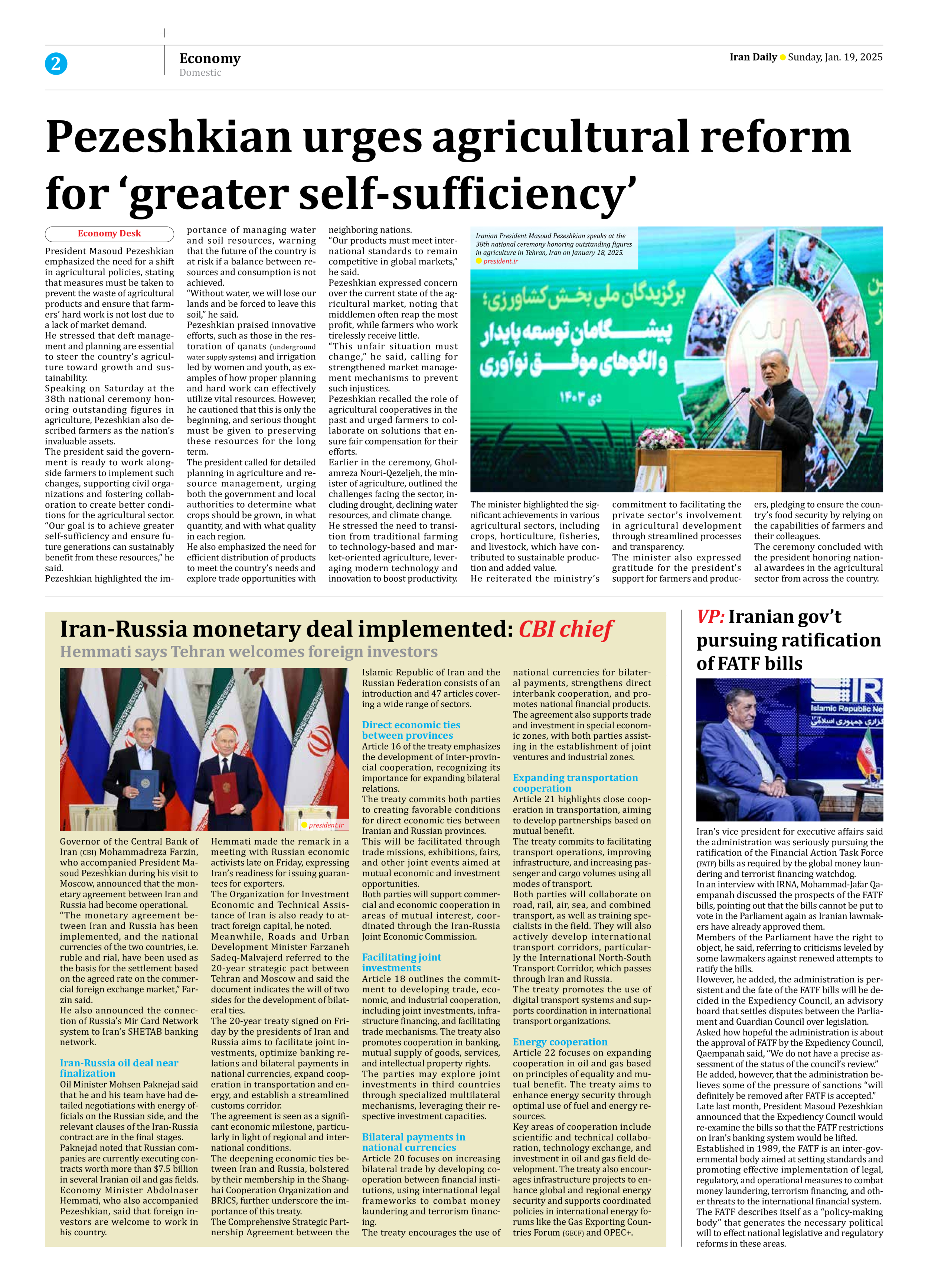
Pezeshkian urges agricultural reform for ‘greater self-sufficiency’
President Masoud Pezeshkian emphasized the need for a shift in agricultural policies, stating that measures must be taken to prevent the waste of agricultural products and ensure that farmers’ hard work is not lost due to a lack of market demand.
He stressed that deft management and planning are essential to steer the country’s agriculture toward growth and sustainability.
Speaking on Saturday at the 38th national ceremony honoring outstanding figures in agriculture, Pezeshkian also described farmers as the nation’s invaluable assets.
The president said the government is ready to work alongside farmers to implement such changes, supporting civil organizations and fostering collaboration to create better conditions for the agricultural sector. “Our goal is to achieve greater self-sufficiency and ensure future generations can sustainably benefit from these resources,” he said.
Pezeshkian highlighted the importance of managing water and soil resources, warning that the future of the country is at risk if a balance between resources and consumption is not achieved.
“Without water, we will lose our lands and be forced to leave this soil,” he said.
Pezeshkian praised innovative efforts, such as those in the restoration of qanats (underground water supply systems) and irrigation led by women and youth, as examples of how proper planning and hard work can effectively utilize vital resources. However, he cautioned that this is only the beginning, and serious thought must be given to preserving these resources for the long term.
The president called for detailed planning in agriculture and resource management, urging both the government and local authorities to determine what crops should be grown, in what quantity, and with what quality in each region.
He also emphasized the need for efficient distribution of products to meet the country’s needs and explore trade opportunities with neighboring nations.
“Our products must meet international standards to remain competitive in global markets,” he said.
Pezeshkian expressed concern over the current state of the agricultural market, noting that middlemen often reap the most profit, while farmers who work tirelessly receive little.
“This unfair situation must change,” he said, calling for strengthened market management mechanisms to prevent such injustices.
Pezeshkian recalled the role of agricultural cooperatives in the past and urged farmers to collaborate on solutions that ensure fair compensation for their efforts.
Earlier in the ceremony, Gholamreza Nouri-Qezeljeh, the minister of agriculture, outlined the challenges facing the sector, including drought, declining water resources, and climate change.
He stressed the need to transition from traditional farming to technology-based and market-oriented agriculture, leveraging modern technology and innovation to boost productivity.
The minister highlighted the significant achievements in various agricultural sectors, including crops, horticulture, fisheries, and livestock, which have contributed to sustainable production and added value.
He reiterated the ministry’s commitment to facilitating the private sector’s involvement in agricultural development through streamlined processes and transparency.
The minister also expressed gratitude for the president’s support for farmers and producers, pledging to ensure the country’s food security by relying on the capabilities of farmers and their colleagues.
The ceremony concluded with the president honoring national awardees in the agricultural sector from across the country.







